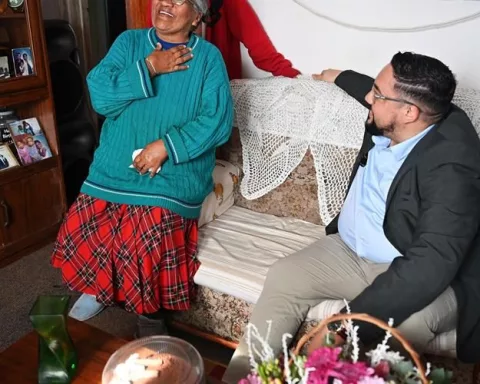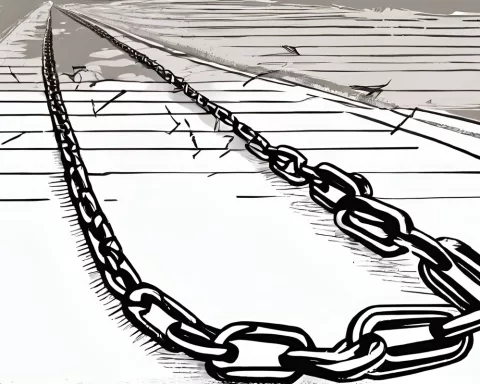Minister Sihle Zikalala recently emphasized the need for collaboration between government officials and contractors to ensure efficient completion of public works projects within budget. This requires transparency, open communication, and diligent project monitoring. Regional managers should be involved in technical structures to improve coordination and planning, while local authorities should act as “eyes and ears” to oversee project implementation. Ultimately, a culture of collaboration, accountability, and excellence is necessary to deliver high-quality results for all public works projects.
What is Minister Sihle Zikalala’s initiative for efficient project completion?
Minister Sihle Zikalala emphasized the need for collaboration between departmental officials and contractors to ensure timely completion of projects within budget. He proposed involving regional managers in technical structures of District Development Models (DDMs) to improve communication and coordination. Councillor Nikiwe Num pledged to act as the Minister’s “eyes and ears” for various projects and their implementation. The collaborative approach requires transparency, open communication, and attentive monitoring of project progress. The ultimate goal is to establish a culture of efficiency, accountability, and excellence to deliver high-quality results for all public works projects.
At a recent Siyahlola engagement in Matlosana, a town in the North West, Public Works and Infrastructure Minister Sihle Zikalala highlighted the importance of cooperation between departmental officials and contractors. By working together, they can ensure the timely completion of projects within the allocated budget. He emphasized that any delay or failure in project delivery would have negative consequences for not only the department but also the individuals involved.
Prioritizing Diligence in Project Management
Minister Zikalala underscored the significance of diligent project monitoring, as project failures often stem from poor project management within the department. This deficiency can lead to issues such as delays and other complications. He explained, “The delays are caused by the lack of coherent planning between the Department and the client Department. Our project managers are not hands-on enough. Long explanations as to why projects are delayed for a long time do not help. We must be hands-on, and the Department must deliver as expected.”
To improve communication, planning, and coordination between the department and contractors, the Minister proposed that all regional managers should be involved in the technical structures of District Development Models (DDMs). This involvement will ensure that regional managers remain informed about plans and coordination efforts across all levels of government, guaranteeing that all parties involved are on the same page.
Local Authorities’ Involvement in Project Oversight
During the same event, Dr. Kenneth Kaunda District Executive Mayor, Councillor Nikiwe Num, who joined the Minister, vowed to act as the Minister’s “eyes and ears” for various projects and their implementation. Councillor Num explained that as part of the DDM work, they would make unannounced site visits to ensure that projects do not stall and that any obstacles are reported to the Minister. She also emphasized the importance of not tolerating any “trial and error” approaches on sensitive projects like the Klerksdorp Correctional Centre.
This correctional center project, which has a budget of R94.4 million, encompasses a wide range of tasks, such as building-related activities, civil, electrical, and mechanical work. The project also includes replacing site sewer reticulation, cold water mains, internal warm water piping, and irrigation water mains. In addition to these updates, the perimeter fencing is being replaced. The project’s expected completion date is 2025.
Encouraging Collaboration for all Public Works Projects
To realize Minister Zikalala’s objective of delivering projects on time and within budget, all stakeholders, including departmental officials, contractors, and local authorities, must collaborate. This cooperative approach requires transparency, open lines of communication, and attentive monitoring of project progress. Additionally, having contingency plans in place is essential to address unexpected obstacles and prevent delays.
It is important to recognize that this call for collaboration applies to all public works projects, not just large-scale infrastructure projects like the Klerksdorp Correctional Centre. Regardless of a project’s size or complexity, the ultimate goal is to establish a culture of efficiency, accountability, and excellence. This culture will ensure that all parties involved in public works projects remain dedicated to delivering high-quality results.
In summary, Minister Sihle Zikalala’s call for increased collaboration between departmental officials and contractors is a critical step toward ensuring seamless project delivery. This collaborative approach will benefit not only the government and taxpayers but also the individuals who use these facilities. By fostering a culture of collaboration, transparency, and diligence, both the department and the contractors can play a vital role in developing infrastructure that serves the nation and contributes to its growth.
1. What is Minister Sihle Zikalala’s initiative for efficient project completion?
Minister Sihle Zikalala’s initiative is to emphasize the need for collaboration between departmental officials and contractors to ensure timely completion of projects within budget. He proposed involving regional managers in technical structures of District Development Models (DDMs) to improve communication and coordination.
2. Why is diligent project monitoring important?
Diligent project monitoring is important because project failures often stem from poor project management within the department. This deficiency can lead to issues such as delays and other complications.
3. What is the role of regional managers in the technical structures of DDMs?
Regional managers should be involved in the technical structures of District Development Models (DDMs) to improve communication, planning, and coordination between the department and contractors. This involvement will ensure that regional managers remain informed about plans and coordination efforts across all levels of government, guaranteeing that all parties involved are on the same page.
4. What is the role of local authorities in project oversight?
Local authorities should act as “eyes and ears” to oversee project implementation. They should make unannounced site visits to ensure that projects do not stall, and any obstacles are reported to the Minister.
5. What is the Klerksdorp Correctional Centre project?
The Klerksdorp Correctional Centre project is a building project with a budget of R94.4 million, encompassing a wide range of tasks, such as building-related activities, civil, electrical, and mechanical work. The project also includes replacing site sewer reticulation, cold water mains, internal warm water piping, and irrigation water mains. In addition to these updates, the perimeter fencing is being replaced. The project’s expected completion date is 2025.
6. Why is collaboration important for all public works projects?
Collaboration is important for all public works projects because it ensures timely completion of projects within the allocated budget. The ultimate goal is to establish a culture of efficiency, accountability, and excellence. This culture will ensure that all parties involved in public works projects remain dedicated to delivering high-quality results.
7. What is the importance of transparency, open communication, and attentive monitoring in project completion?
Transparency, open communication, and attentive monitoring are important in project completion because they ensure that all parties involved are on the same page. This approach guarantees that any unexpected obstacles are addressed promptly, preventing delays and other complications.
8. Who benefits from Minister Sihle Zikalala’s initiative for efficient project completion?
Minister Sihle Zikalala’s initiative for efficient project completion benefits not only the government and taxpayers but also the individuals who use these facilities. By fostering a culture of collaboration, transparency, and diligence, both the department and the contractors can play a vital role in developing infrastructure that serves the nation and contributes to its growth.








